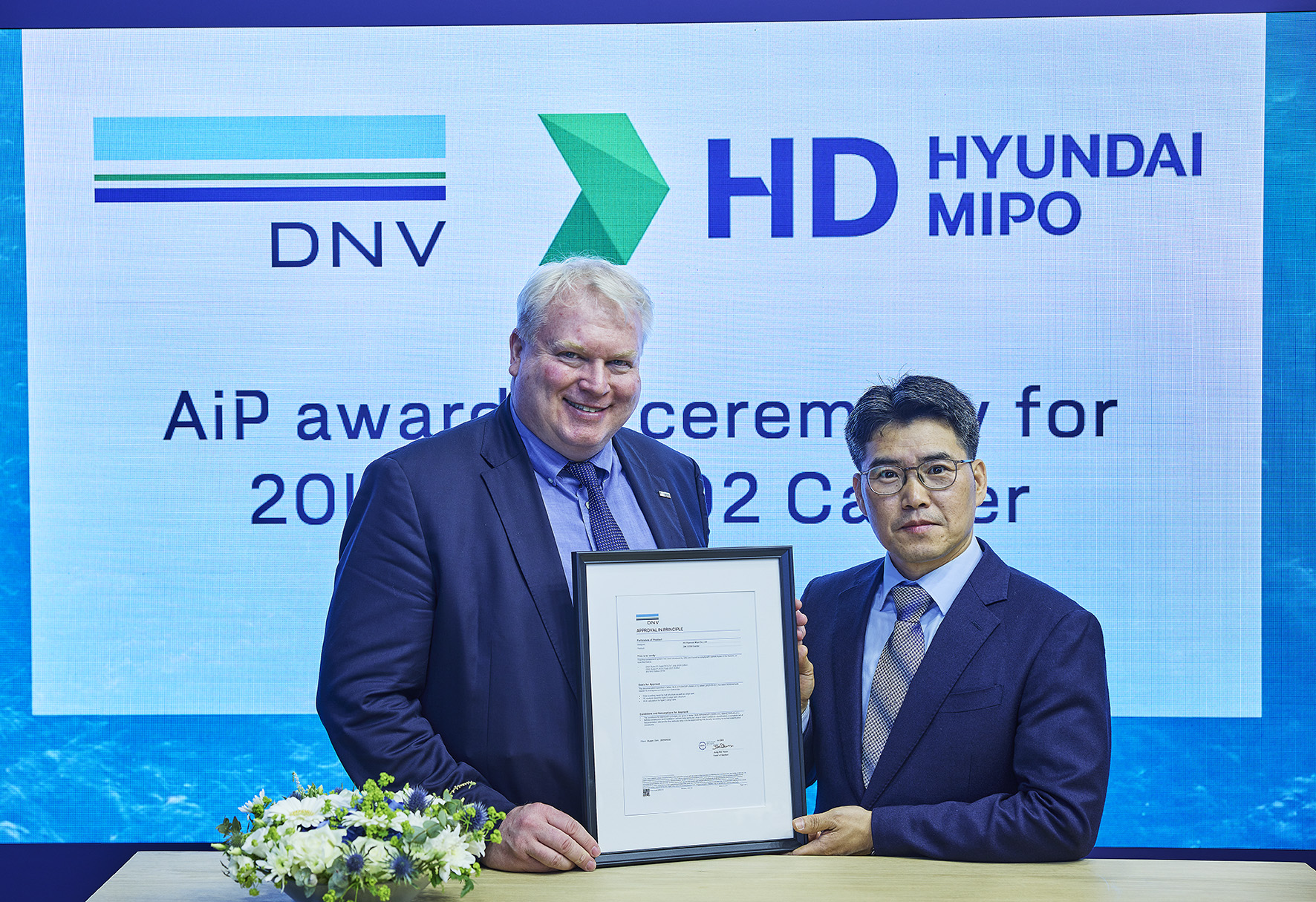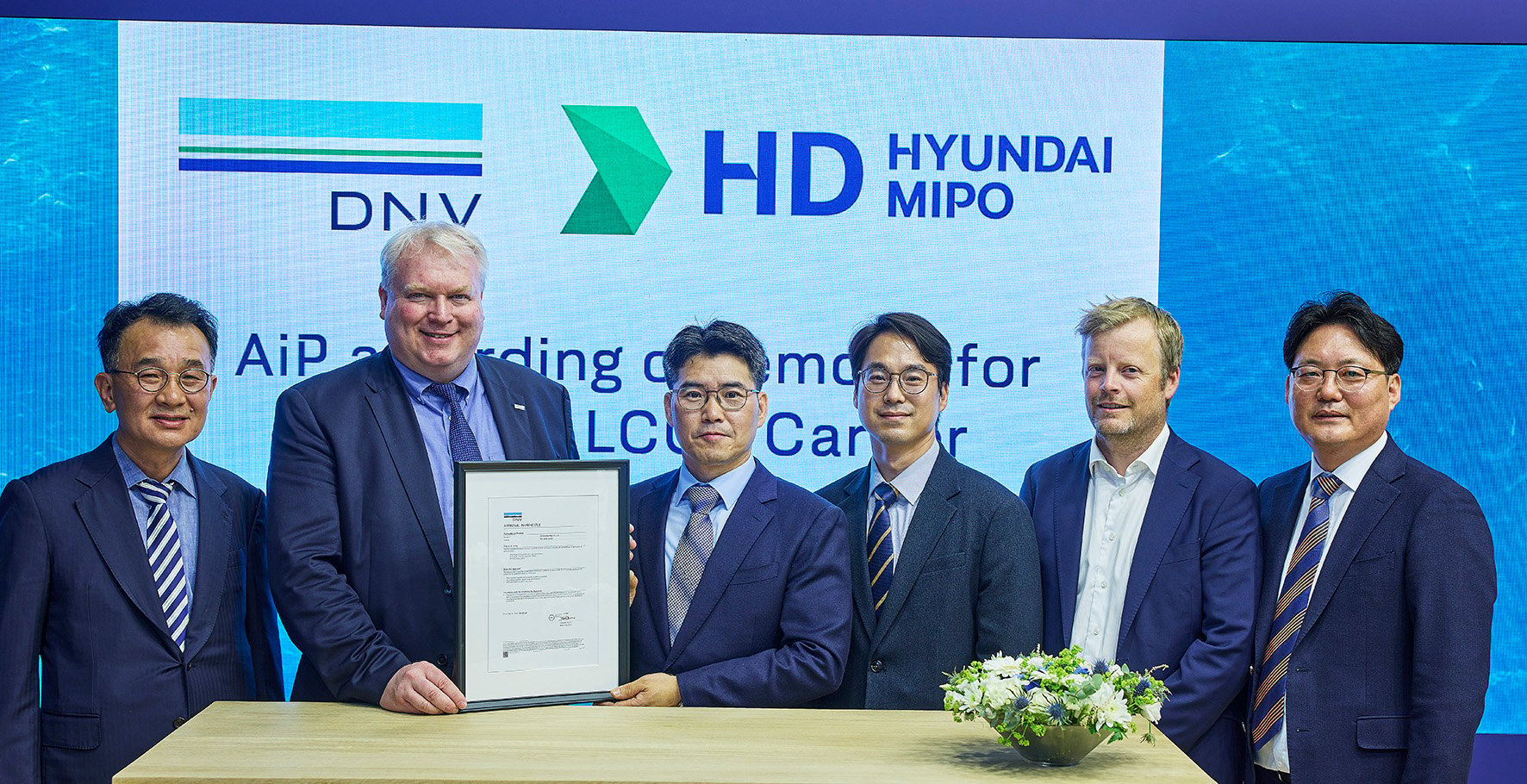DNV Grants Approval in Principle to HD Hyundai Mipo for 20K cbm LCO₂ Carrier Design
Oslo, 5 June 2025: DNV has awarded an Approval in Principle (AiP) to HD Hyundai Mipo for its 20,000 cbm liquefied carbon dioxide (LCO₂) carrier. This AiP is another milestone in the development of next-generation CO₂ transport solutions in this rapidly developing vessel segment.

Image 1: Celebrating the AiP handover at the DNV booth
As the first major projects in the global carbon capture, utilization and storage (CCUS) sector start to come on-line, shipping is stepping up to support this emerging industry. An innovative new 20K-class LCO₂ carrier design has been developed in close cooperation between HD Hyundai Mipo and DNV and is now recognized through the award of an Approval in Principle (AiP) at the Nor-Shipping trade fair.
The optimized design has been tailored to meet the increasing demand for efficient and secure transport of CO₂ for decarbonization projects worldwide. It addresses the specific challenges to CO₂ transport, including the high internal pressure, low-temperature conditions, and long-distance transport requirements. The AiP covers HD Hyundai Mipo’s optimized medium-pressure, type C cargo tank design, with structural safety verification for the complete vessel now finalized.
Dongjin Lee, EVP/Head of the Initial Design Div. & Detailed Design Div. at HD Hyundai Mipo, said: “We are proud to receive this Approval in Principle from DNV. The successful development of this vessel further strengthens HD Hyundai Mipo’s position as a front runner in eco-friendly shipping. This 20K LCO₂ carrier design offers a safe, practical solution for the expanding carbon transport market, and we are confident it will play a key role in global decarbonization efforts.”
Vidar Dolonen, Regional Manager of DNV Korea & Japan added: “This project is a successful example of global collaboration, drawing the deep technical competence and commitment to innovation between two leaders in their fields. By bringing together HD Hyundai Mipo’s technological excellence and DNV’s regulatory expertise, we are working to offer this exciting new industry a solution that can support the deployment and scaling of CCUS infrastructure and the global energy transition.”
An Approval in Principle (AiP) is an independent evaluation of a concept based on a predefined framework of requirements. It confirms the feasibility of the design and ensures there are no significant technical obstacles hindering its implementation.

Image 2: (left) Vidar Dolonen, Regional Manager of DNV Korea & Japan, DNV Maritime, (right) presents the AiP to Dong-Hyon Woo, Head of Hull Initial Design & Technology Strategy at HD Hyundai Mipo.